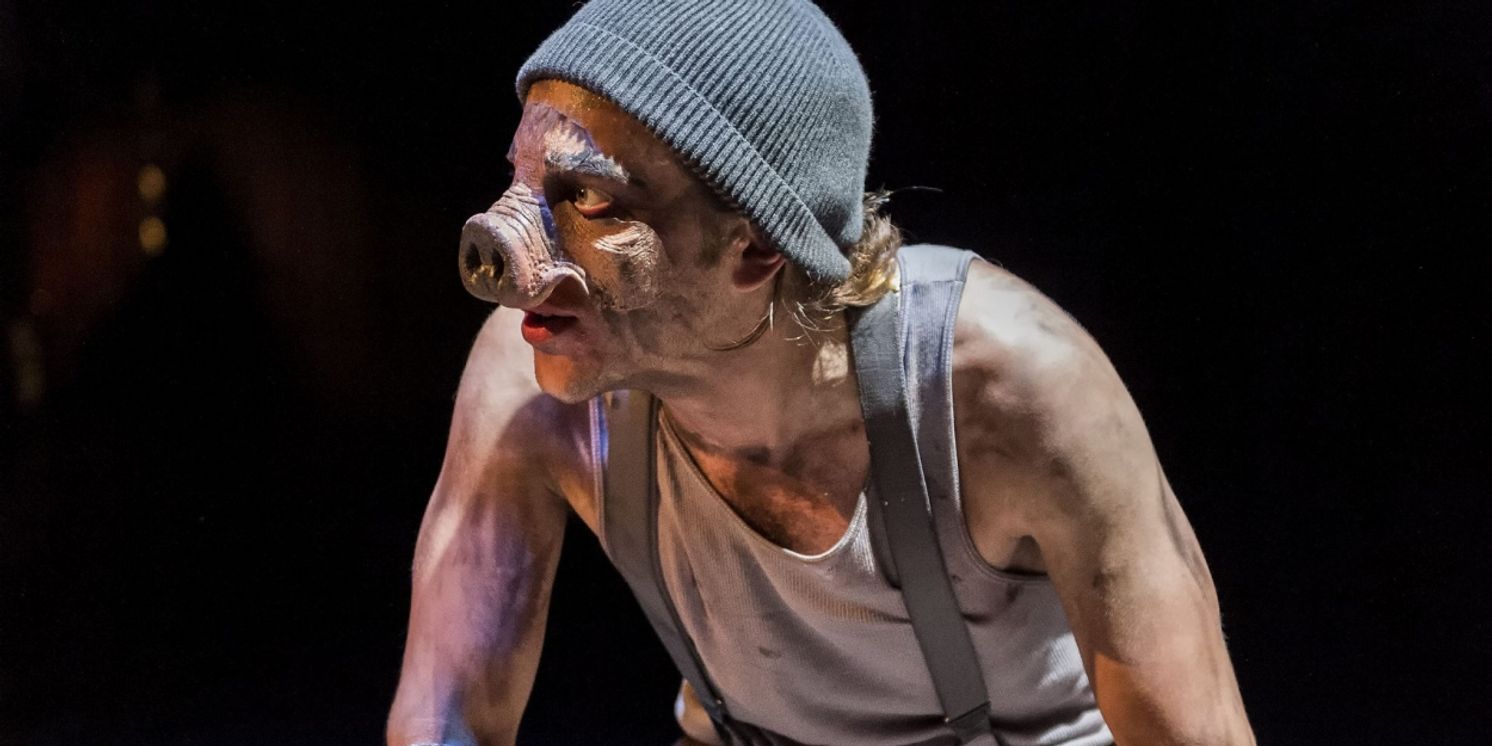Review: ANIMAL FARM at A Noise Within
A chilling adaptation of a timely tale

The best way to describe my experience at A Noise Within's production of Peter Hall, Adrian Mitchell, and Richard Peaslee's 1984 musical version of Animal Farm is that when the ensemble came out to bow and I only counted 11 actors, my jaw dropped. So clever are Angela Balogh Calin's grimy trunk-show of costumes, so economical are Julia Rodriguez-Elliott's stage pictures, and so agile is the entire troupe that the whole performance seems to be undertaken by a cast three times this size. Highlights include a beautifully illustrative staging of the animals exploring the farm upon which they were once enslaved by the drunken Mr. Jones. Using only wooden planks and scored by declarative narration, Rodriguez-Elliott suggests the splendor of an orchard, the foreign luxury of a farmhouse, and the new way these animals engage with the world in which they've always lived as newly-autonomous beings.
The story itself has aged beautifully-- if not because it is an "exposé on the fragility of democracy" as the producing artistic directors claim, but perhaps because it is an erudite analysis of the human condition and the ways selfishness can muddy even the purest original intentions. The adaptation weaves narration from the source text with dialogue that succinctly paints each characters' place in the allegory and witty lyrics that propel the story at a steady pace. Ultimately, the success of the show, however, relies upon the pangs of human pain which come alive in fully cathartic technicolor. While the animals' lowly intelligence may be played for laughs in the first act, a wise turning point plays out when the vain horse Mollie (a minor character in the book played here with a disarmingly gentle voice by Nicole Javier) sings of her folly in returning to a life of subjugation. The tone of the piece pivots around this song as a fulcrum and the dramatic emotion of the adaptation escapes from the more pragmatic portions of the source text.
The most lasting performance is by Rafael Goldstein as Napoleon, the pig who stands in for Stalin within the animals' revolution. With cinematic nuance, his characterization is one that raises more questions than it answers and tempts me to return and see another performance. At what point does this down-to-earth, charismatic leader realize he can outwit the other animals? From what point do his "tactics" come into play? Watching his performance (regardless of how foolish the other animals are painted to be) I understand how a despot can win over the masses which he later intends to betray. The other pigs, Snowball and Squealer, (played by Stanley Andrew Jackson and Trisha Miller respectively) are equally secure in their allegorical roles, driving home the characterizations laid out in Orwell's text. Another standout in the cast is Cassandra Marie Murphy who is perfectly poised to lend a polished, musical theatre vocality to Moses the crow and an earthy butch-ness to Minimus the pig.
The performance is a success, but as with all story-driven theatre which had its style epitomized to commercial success in the Royal Shakespeare Company's Nicholas Nickleby or the later Peter and the Starcatcher, there are self-referential excesses which do not support the propulsion of the story. While actors swinging on ropes and white text projections are accepted within the quasi-minimal style, here they seem entirely superfluous. How could this performance excel further if devoid of all theatrical entrapments that do not support the narrative arch?
Reader Reviews

Videos

